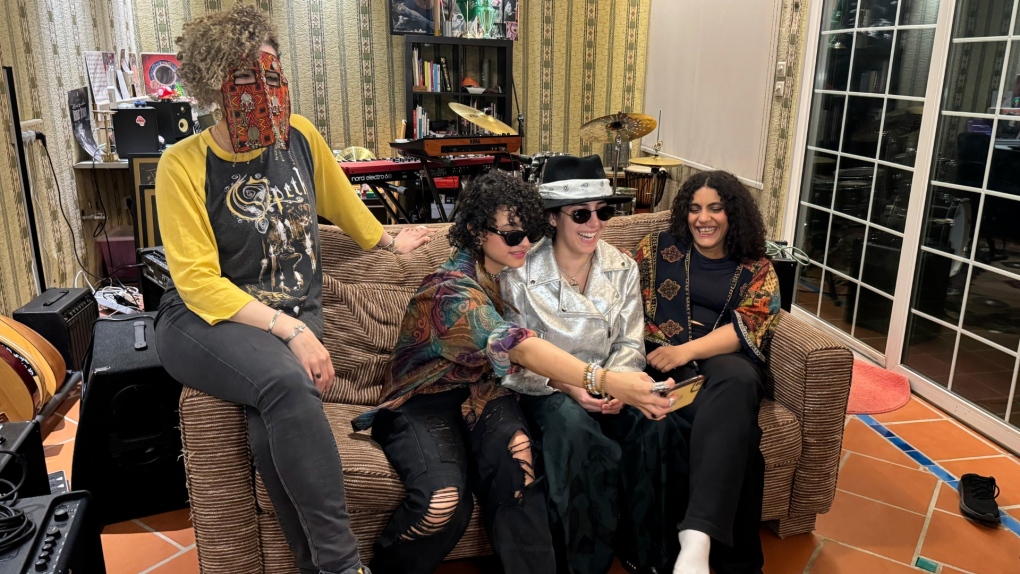
In Saudi Arabia, an all-women psychedelic rock band jams out as its conservative society loosens up
CTV
As Saudi Arabia liberalizes some aspects of its society Seera, an all-women psychedelic rock band that blends traditional Arabic melodies with the resurgent psychedelia of bands like Tame Impala, represents the way women now are finding their voice and expressing themselves through the arts in a nation long associated with ultraconservative Islam and the strict separation of the sexes.
Leaning into the microphone in Saudi Arabia's capital, Nora let loose a primal scream. Guitars wailed and drums throbbed behind her as part of a set with her bandmates during a recent show.
The performance by Seera, an all-women psychedelic rock band that blends traditional Arabic melodies with the resurgent psychedelia of bands like Tame Impala, would have been unthinkable just years earlier in the kingdom.
But as Saudi Arabia liberalizes some aspects of its society, Seera represents the way women now are finding their voice and expressing themselves through the arts in a nation long associated with ultraconservative Islam and the strict separation of the sexes.
"We didn't know how people would react," said Meesh, the band's bassist, who like other members asked to be identified by their stage names. "We believe strongly in self-expression. To our surprise, they really had open arms for us."
The band's name, Seera, can mean "life" or "biography" in Arabic. Band members say they try to embrace the multiple meanings one can draw from a word in the language in its sound, whether through the driving drums and cymbals or the synthesizer backing the guitars.
Seera's music style revolves around the life experiences of the four-member band, who are all Saudi nationals. They sing in the Saudi dialect of Arabic, while drummer Thing wears a traditionally embroidered red face covering.
"I thought this would be great as a reflection of the culture, the heritage and the roots," she said. "At the same time it would be a cool representation between the traditional and the modern and the expression of it. That's also within our sonic identity as well."
